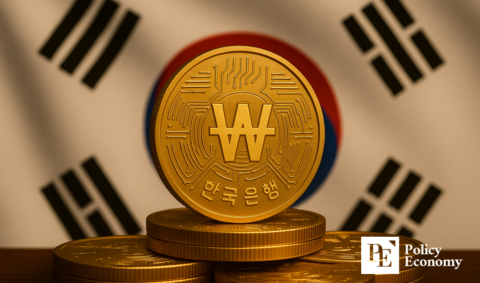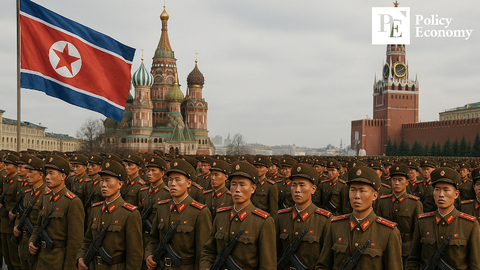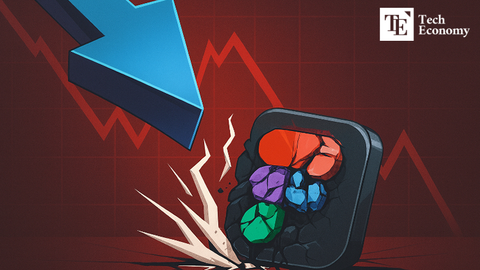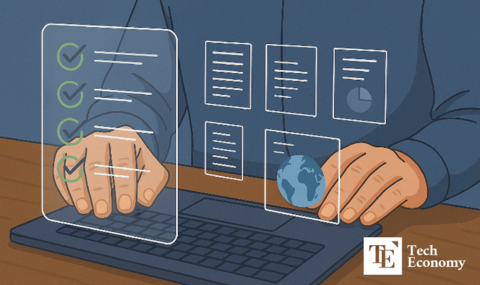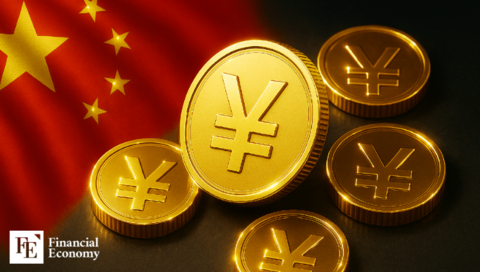"Are Tariff Policies Truly Effective?" Market Confidence Eroded by Trump’s Extreme Actions
Input
Changed
Trump’s Tariff War Failed to Attract Investment to the U.S.? “Ignoring signal gates and attacking the Fed” — Trump’s reckless politics Credit rating agency Moody’s downgrades U.S. sovereign credit rating
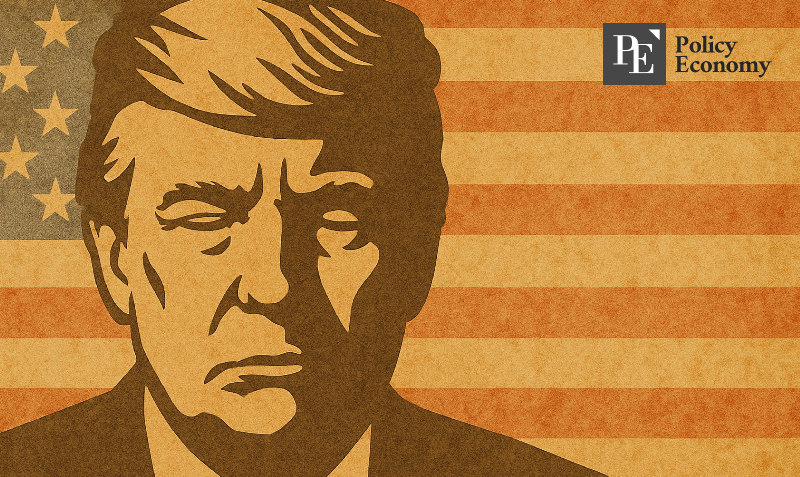
The Trump administration claimed that raising tariff rates would boost foreign investment in the U.S., but it remains uncertain whether the policy actually attracted such investment. As President Trump continues to make risky moves that increase market uncertainty, risks surrounding the U.S., such as the downgrade of its sovereign credit rating, are growing.
Doubts Over Trump’s Tariff Policy Outcomes
On 18th May (local time), the political news outlet Politico reported that while President Trump tried to use tariff policies to encourage foreign companies to invest in the U.S., no clear effect has emerged. Trump had argued that imposing high tariffs on imports would promote “reshoring,” meaning American and foreign companies relocating production facilities back to the U.S. White House spokesperson Cush Desai recently cited a roughly 22% increase in domestic gross investment in Q1 of this year as evidence of the tariff policy’s effectiveness.
However, Politico emphasized that the figures Desai presented were recorded before the tariffs were actually implemented. The White House reportedly included investment plans decided before the tariff war began as “tariff achievements,” exaggerating the policy’s impact. Furthermore, Politico noted that due to the fluctuating nature of tariff policies, companies frequently change or postpone their investment plans, making it very difficult to assess tariffs’ real impact on corporate investment.
Facing the risk that tariff policies are backfiring and pushing the U.S. toward a fiscal crisis, President Trump has instead doubled down on tax cuts rather than raising revenue. Recently, he urged the Republican majority in Congress to pass a “big, beautiful, single bill” consolidating his various economic policies. The bill’s core elements include extending the Tax Cuts and Jobs Act (TCJA), lowering income and corporate taxes, and making tips and similar earnings non-taxable. According to the U.S. public interest group Tax Foundation, if passed, the bill could reduce U.S. government revenue by about USD 4 trillion by 2034.
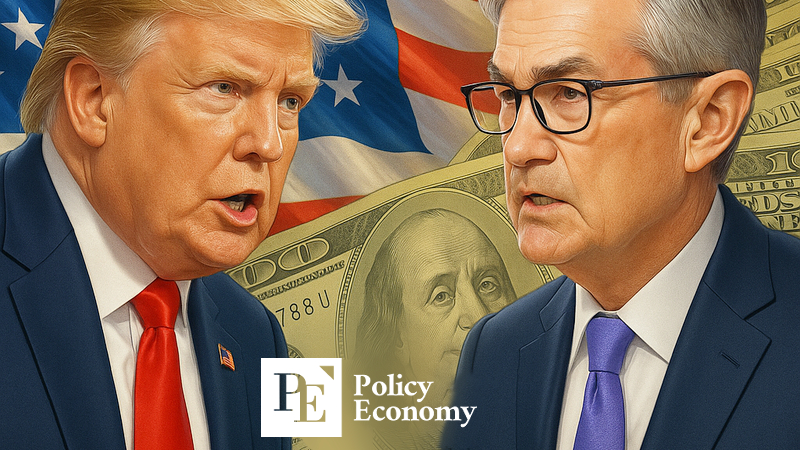
Trust Erodes Amid Cumulative Missteps
Beyond tariffs and tax cuts, President Trump is making precarious moves that risk further damaging market confidence. A prime example is his failure to immediately dismiss White House National Security Advisor Mike Waltz, who was at the center of a military secrets leak controversy known as “Signal Gate.” Waltz lost trust within the White House after it emerged in March that he discussed sensitive military information, including plans for strikes against Houthi forces, over the private messenger app Signal with diplomatic and security officials. However, Trump delayed Waltz’s dismissal to avoid appearing to yield to outside pressure and only removed him this month.
Excessive pressure on the Federal Reserve (Fed), which independently determines monetary policy, is also problematic. Recently, Trump has repeatedly called on the Fed to cut interest rates, urging economic stimulus in response to inflation and recession concerns caused by his aggressive tariff policies. On April 17, he said, “If I wanted to fire Jerome Powell [Fed Chair], I could do it very quickly,” adding, “I’m not satisfied with him.” On the same day, he posted on social media urging rate cuts, claiming, “Powell should have lowered rates long ago like the European Central Bank (ECB), and it’s not too late now.”
This pressure has continued. On May 14, Trump wrote on social media, “There is no inflation, and prices for gasoline, energy, groceries, and everything else have effectively fallen,” urging the Fed to cut rates “like Europe and China have.” He also questioned, “What’s wrong with ‘Too Late Powell’? Isn’t it unfair to a prospering America?” and added, “Just let everything happen.”
Market insiders criticize Trump’s repeated calls for rate cuts as a “bad move.” One market official explained, “Policymakers generally want to cut rates, but blindly accepting this can worsen inflation and cause other side effects,” stressing, “That is why institutions deciding monetary policy, including the Fed, are granted independence.” The official added, “If the Fed succumbs to political pressure, global investors may lose trust in the dollar’s value, which could reduce investment appetite for U.S. risk assets and accelerate a weak-dollar trend.”
U.S. Credit No Longer ‘Top Tier’
Amid accumulating negative factors since the Trump administration took office, the U.S. sovereign credit rating has noticeably deteriorated. On May 16, Moody’s, one of the world’s top three credit rating agencies, announced it downgraded the U.S. credit rating from the highest level ‘Aaa’ to the next level ‘Aa1.’ This marks the first time since 1917—108 years—that the U.S. rating has fallen below Aaa in Moody’s evaluation. The other two major rating agencies, Standard & Poor’s (S&P) and Fitch, had already downgraded the U.S. rating by one notch in 2011 and 2023, respectively.
Moody’s cited the rapidly increasing national debt as the reason for the downgrade. The U.S. government’s debt ratio and interest payment ratio have risen sharply over the past decade to levels much higher than countries with similar ratings. As of May this year, the U.S. national debt approached approximately USD 36.22 trillion, a USD 1.66 trillion increase from the previous year. Last year, the U.S. government spent USD 1.133 trillion on interest payments on national debt, surpassing USD 1 trillion for the first time in history.
Additionally, Moody’s warned that the current fiscal reform plans under review by the Trump administration are unlikely to reduce mandatory spending and fiscal deficits in the coming years. Thus, the tariff war and tax cut policies under Trump were judged as not significantly helping to resolve fiscal deficits. In response, the U.S. White House openly expressed dissatisfaction, stating, “Moody’s, which was quiet during the four years under former President Joe Biden, has made a biased decision.”

